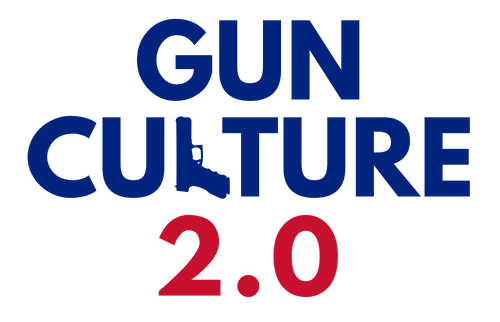This is the next edition in my repository post on what I am calling The Master Narrative of Democracy Destroying Right-Wing Gun Culture, the dominant paradigm in the interdisciplinary academic field of gun studies (and as a key organizing idea in the wider culture).
This narrative complements The Standard Model of Explaining the Irrationality of Defensive Gun Ownership. Maybe someday I will be able to merge these two components of the dominant approach to understanding guns in the United States into one Grand Theory.
First, read a bit about scientific paradigms generally and then get to the growing list specific works after the Thomas Kuhn book cover.
Hey, buddy, can you paradigm?
Generally, a paradigm can be understood as a school of scholarship in which members are in fundamental agreement about key theoretical presuppositions, concepts, empirical procedures, and exemplary studies. The concept of scientific paradigms was developed by philosopher of science Thomas Kuhn in his landmark 1970 book, The Structure of Scientific Revolutions.
In fact, the level of consensus that Kuhn finds in scientific fields such as physics does not usually exist in sociology. In Kuhn’s terms, most social sciences are actually “pre-paradigmatic.” This makes the level of consensus in the interdisciplinary field of gun studies remarkable.
Following are examples of works that fit the Master Narrative. I will continually update this list as new examples are published.
Paradigmatic Exemplars of The Master Narrative
Firepower: How the NRA Turned Gun Owners into a Political Force by political scientist Matthew Lacombe is one of my Top 5 books on guns in America (as of August 2022). Lacombe correctly argues that much of the legislative strength of the National Rifle Association is due to its ability to politically mobilize guns owners on its behalf. And key to that political “weaponization” has been the cultivation of “gun owner” as a social identity in the first place.
Unlike many who tell a simplistic tale of the NRA, Lacombe rightly observes that the NRA was both highly political and highly ideological prior to the Cincinnati Revolt in 1977. In fact, in the Virtual Book Club I am running right now on Gun Country (another piece of The Master Narrative), Andrew McKevitt highlights activist journalist Carl Bakal’s claim in his book The Right to Bear Arms that “the NRA has for nearly four decades conducted one of the most intensive and imaginative lobbying operations witnessed in Washington” (p. 8). Written in 1966. The post-1977 difference is that the NRA became partisan and Lacombe explains how today’s NRA political alignment with the GOP grew.
This work contributes to The Master Narrative mostly in the final conclusion Lacombe draws from his meticulous and clever empirical analysis. In the final paragraph of the book he writes that the NRA “represents something of a democratic paradox: it subverts the will of the majority, but does so by working the levers of democracy” (pp. 236-7). Furthermore, “the NRA’s identity-based appeals tend to rely on fear in a way that encourages polarization, discourages compromise, and–in some cases–advances conspiratorial views that are misleading and offensive” (p. 237). The final sentence of the book that secures its standing in The Master Narrative reads: “In the end, then, the NRA demonstrates that groups can be effective at using democracy to their advantage, even to the point of undermining it” (p. 237).
My first example is actually not by a scholar, but the book so purely reflects The Master Narrative that it provides a great starting point: Gunfight: My Battle Against the Industry that Radicalized America by Ryan Busse. (I have previously reviewed the book here.) Busse is the former Vice President of Sales for the gun manufacturer Kimber. He is mad and he doesn’t deny it. He also wants to atone for his sins and this book is part of that process.
Busse argues that the National Rifle Association and its economic arm, the gun industry, have played a “leading role” in politically radicalizing America (p. 57). He concludes, “The gun industry and the NRA have successfully transformed an entire country” (p. 303).
NOTE: Links to purchase books through Bookshop.org are affiliate links. Bookshop.org sales help support independent bookstore and any affiliate commissions I earn go to supporting the costs of running this and my other websites.




“the NRA’s identity-based appeals tend to rely on fear in a way that encourages polarization, discourages compromise, and–in some cases–advances conspiratorial views that are misleading and offensive”
Heck, I’ve seen some of that same identity politics on the Left. One hand washes the other.
LikeLiked by 1 person
First rule of the Left: It’s Okay When We Do It™
LikeLiked by 1 person